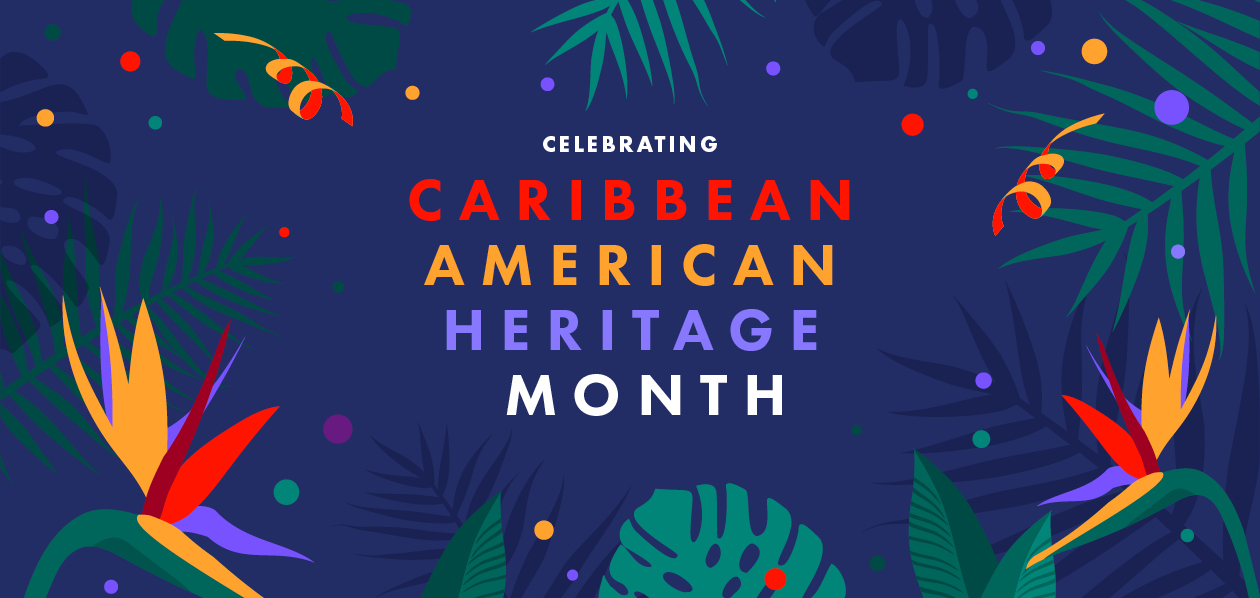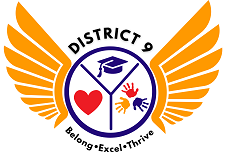Overview
Every June, we celebrate Caribbean American Heritage Month(Open external link), recognizing the great historical contributions of various peoples whose roots can be traced to the countries that make up the Caribbean subregion of the Americas.

After the success of an advocacy campaign launched in 2004, Caribbean American Heritage Month was recognized for the first time on a federal level on June 5, 2006, when then-President George W. Bush issued a presidential proclamation(Open external link) to establish the month of June as a time to “celebrate the great contributions of Caribbean Americans to the fabric of our Nation, and [to] pay tribute to the common culture and bonds of friendship that unite the United States and the Caribbean countries.”
Caribbean Americans have always been at the forefront of U.S. history: Alexander Hamilton,(Open external link) our nation’s first Treasury Secretary, for example, was himself an immigrant from the Colony of Nevis in the British Leeward Islands. In fact, Caribbean immigration to the United States can be traced as far back as 1613, when historical records show that Juan Rodriguez(Open external link) from the Spanish colony of Santo Domingo (today’s Dominican Republic) was the first non-indigenous person to settle in New Amsterdam, the area that would eventually become downtown New York City.
Not all migration was voluntary, however; during the 17th to 19th centuries, many Africans were forcibly brought to British colonies of the Caribbean as slaves. Once the slave trade became illegal in the British Empire in 1807, South Asians and East Asians, in particular, were brought to present-day Guyana, Jamaica, and Trinidad and Tobago as indentured laborers.
When slavery in the U.S. was abolished after the end of the Civil War in 1865, migration from the Caribbean grew significantly. Most Caribbean immigrants at the time were fleeing from poverty, and destructive hurricanes, droughts, and floods in their homelands. While in 1850, there were 4,000 U.S. residents of Caribbean descent, the population grew to more than 20,000 in 1900, and almost 100,000 in 1930.
As of 2016, 13 million people living in the United States—or 4% of the U.S.’s total population—have Caribbean ancestry, with New York City boasting the highest Caribbean population(Open external link) in the country among all U.S. cities. These communities trace their roots back to Africa, Asia, Europe, and the Indigenous peoples of the Americas, and include a mix of cultures, religions, and languages. In fact, several languages spoken in Caribbean nations—such as Spanish, French, and Haitian Creole are among the top spoken languages in New York City.
Today, the largest Caribbean immigrant groups to the U.S. are from Cuba, the Dominican Republic, Jamaica, Haiti, Guyana, and Trinidad and Tobago, and have often settled in vibrant communities like “Little Haiti” in Brooklyn, where their culture and contributions are always on full display. U.S. citizens from Puerto Rico and the U.S. Virgin Islands have also migrated to mainland U.S. in large numbers.
Since the 2006 declaration, the White House has issued an annual proclamation in recognition of Caribbean American Heritage Month. In his his 2023 proclamation,(Open external link) President Joseph Biden Jr. celebrated , “the generations of Caribbean Americans who literally built this country—bringing tremendous hope and energy to bear as small business owners, teachers, health care workers, military service members, union organizers, community leaders, and so much more.”
This June, and all year long, we encourage our families to explore the resources below to learn more about Caribbean Americans and their vibrant and diverse community, and their impact on this country, and particularly the fabric of this multicultural City.
Events, Exhibitions, and Places to Visit
- The New York Public Library(Open external link) (NYPL) is hosting events throughout June, including:
- a film screening of Moko Jumbie, described as “a gothic punk Caribbean love story,” which will take place at the Hamilton Grange library on Thursday, June 6
- a Caribbean food tasting to “unlock a world of flavor, culture, and creativity right in your own kitchen” to be held at the Tremont library in the Bronx on Tuesday, June 18
- Haiti Cultural Exchange (HCX)(Open external link) is hosting its first performance in Times Square featuring Haitian musician Paul Beaubrun on June 11.
- Prospect Park Alliance is also hosting several events, such as One Love Little Caribbean Day on Sunday, June 23, in partnership with I AM CARIBBEING, Know Your Caribbean(Open external link) and Black Wall Street(Open external link) featuring a Carnival workshop, curated marketplace, and dance class by Soca & Sweat.





